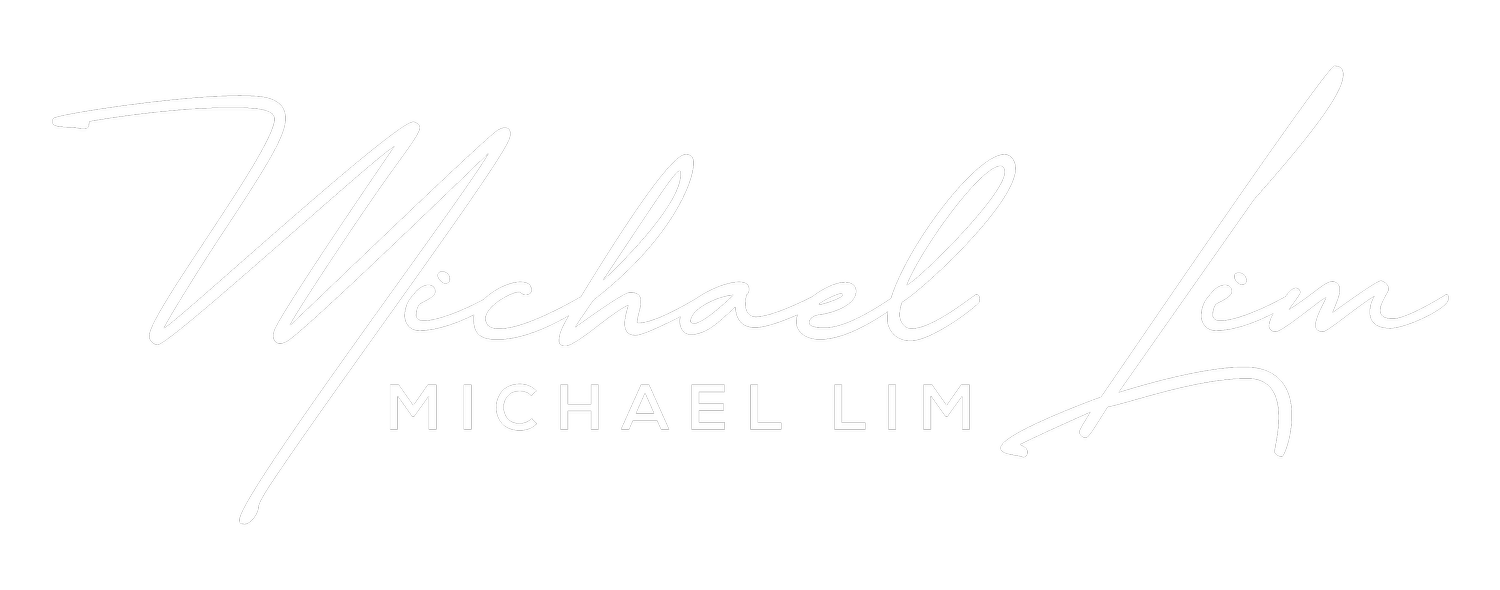5 Practical Ways To Become A Learning Machine
Your ability to earn is based on your ability to learn
The world of work is changing. Quickly.
While change has always been a feature of modern life, the rapidity of change is new. The social contract of linear progression from education to work then retirement is now a fleeting dream for anyone under 40.
As a knowledge worker, I am constantly going through cycles of learning, relearning and unlearning. New knowledge is constantly replacing old knowledge. New skills are making old skills obsolete within a couple of years.
The fastest way to become irrelevant is to think learning only happens in school. The pace of the world is changing so quickly you need to be able to learn a new skill set every couple of years and continually reinvent yourself.
Yuval Noah Harari summarises:
The biggest problem of the 20th century was being economically exploited.
The biggest problem of the 21st century is being economically irrelevant.
At least when you’re being exploited society still needed you. When you’re irrelevant you have no benefit to anyone. There is less incentive to provide education, employment or social security benefits.
It sounds harsh, but you can’t rely on the government to support you through unemployment and especially not retirement. The oncoming tightening of the budget post-pandemic will cause a lot of pain in the short to medium term.
At the same time, specialization is becoming less and less valuable. Limited only to specific fields such as medicine and health. But even those fields are being disrupted by technology.
Accreditation and qualifications are also becoming less and less relevant.
Many employers are now looking for those with soft skills such as communication, teamwork and collaboration. Employers look for demonstrated experience rather than theoretical excellence.
Specialization and qualifications are no longer an effective investment hedge against the uncertainty of the labor market. There are new rules to the game and we have all signed up to a new contract.
Those who will rule the world will be expert generalists. They are people who can rapidly learn new skills and change to dynamic economic conditions. Flexibility rather than specialization is the new superpower.
“In a wicked world, relying upon experience from a single domain is not only limiting, it can be disastrous.” — David Epstein
Making yourself into a learning machine that can rapidly acquire new skills will position you well in the market. However, we are always told what skills to learn and not really told how to learn.
This article details learning methods to help you thrive, not only survive, in this new world of work. Access to knowledge has never been easier. We walk around with the world’s knowledge on our phones.
1. Aim To Build Your Skill Stack Not Your Skill Set.
To thrive in the 21st century, you will need to have a broad and complementary skill stack rather than a deep and narrow skill set.
What’s the difference?
Normally people think that success will come from developing talent in one skill. Sport is a great example of this. To be the best, you’ve got to be in the top 1% of your field. Think Tiger Woods, Naomi Osaka or Sam Kerr.
But that’s the wrong model of skill development for knowledge workers.
You can also create talent by having a unique stack of skills that no one else possesses. By combining diverse but complementary skills, you can create a unique value proposition that positions you away from everyone else.
Through your skill stack, you’ll be competing in a field of me, myself, and I. You don’t even have to be world-class (top 1%) in any of the skills in your stack. You only really need to aim for the top 20% in all of them.
Almost anyone, with consistent effort and the right mindset, can get proficient in any skill to be in the top 20% of the world in anything. “Each skill you add to your stack roughly doubles your odds of success,” writes Scott Adams.
The goal of a talent stack is to stack different skills to create a sweet spot. A sweet point that dramatically raises your value in a competitive field. — Personal Excellence Blog
How to build a skill stack:
Look at which skills you already possess. What complementary skills would enhance or add more value to your existing skill stack? If you are a good writer, maybe public speaking or videography skills might be useful.
Follow what makes you curious. Start with skills you are already interested in learning. There isn’t any point in learning a skill if you aren’t having fun while doing so.
2. Learn New Things Daily.
Never stop adding to your knowledge base and skill stack.
Read books, listen to podcasts, take online courses. There is an abundance of ways to learn something new every day. Your learning should take a priority over everything else.
“Free education is abundant, all over the Internet. It’s the desire to learn that’s scarce.” — Naval Ravikant
How to learn new things daily:
Convert commute time into learning time. Your car can become a university with wheels. Listen to a podcast or audiobook to and from work or weekend commutes.
Understand how you like to learn. Do you prefer videos or books? Audio over online courses? Once you know your preference, leverage it. Always have it available so you can use dead time in waiting rooms to teach yourself something.
3. Find Your Tribe of Mentors
Mentors help you to shortcut your learning. They have gone through the trial and error process and can help guide you smoothly through that process. You can learn from their mistakes and wins.
This isn’t to say you won’t face your own adversity, but you won’t be completely alone when you do so. Mentors help to provide perspective when you think your world is ending.
I’ve got mentors for everything. My career, personal finance, relationships, etc. You can use the internet to find mentors for everyone domain of your life. You are just limited to who you know personally.
Naval Ravikant is a person I deeply admire and I have absorbed his lessons through his podcast, blog and book. He has changed my life and he probably doesn’t even know that I exist.
“Mentors have the experience to notice what we can’t, the knowledge to teach us what we need, and the wisdom to guide us through the process. Mentors help us push our abilities by not only pointing out what needs to be corrected but also giving us insight into how to do it.” — Nick Velasquez
How to find the best mentors:
Look for people who have already achieved what you want to achieve. Ask them to mentor you. Chances are they will be flattered by the offer and do what they can to help you.
If you don’t have the network to find someone, utilize the internet. You can be mentored by the best minds in the world through their podcasts, books, and blogs. You don’t have to know them personally in order to receive their wisdom.
You must commit. I will only mentor someone who is willing to be coached. I want to see a genuine willingness to change and learn. Otherwise, we are both just wasting our time.
4. Engage Regularly in Deliberate Practice
You won’t improve by simply repeating the same activity over and over again. Accumulating 10,000 hours of practice doesn’t mean you will automatically become a master. You want 10,000 iterations rather than 10,000 hours.
“I fear not the man who has practiced 10,000 kicks once, but I fear the man who has practiced one kick 10,000 times” — Bruce Lee
To improve, you need to be able to continually stretch and challenge yourself. Over time, your practice will give you diminishing returns. What was hard for you today won’t be tomorrow.
Your body and mind only change when faced with adversity. You can only become as good as what you are repeatedly exposed to. You must constantly face desirable difficulties to improve year after year.
How to engage in deliberate practice:
Hire a coach. Someone who can give you consistent feedback on your practice and incrementally improve your technique and form. They can help push you to the next level and identify barriers stopping your development.
Just like going to the gym, you need to slowly increase the level of difficulty you face each week. Ran 3 miles this week? Try 3.25 next week. Called 4 potential clients last week? Call 5 this week. Progressive overload is a key principle to deliberate practice.
5. Consistently Seek Out Feedback, Especially When It Is Difficult To Do.
Hearing that your performance was not up to scratch can be difficult to hear. But do you know what’s even more difficult? Staying mediocre. A moment of critical feedback can improve your performance in the long term.
Set aside the ego and listen. The best form of feedback is when it is specific, timely, and actionable. You gotta know exactly what you need to improve, when, and how.
Constructive feedback does not define you nor does it become your identity. People are talking about the performance, not the person. Learn to separate those two things, it’ll allow you to receive and give feedback more readily.
Fear holds many people back from soliciting feedback. People shy away from it, scared of the answer they will get. But as Brene Brown says “clear is kind”. No feedback means no improvement. In that scenario, everyone loses.
How to seek out feedback:
Solicit direct and constructive feedback. Ask people to be your evaluators on core skills you need feedback on. When you perform at work, ask them to write down feedback before you start so they know what to look out for.
Solicit specific and timely feedback. General and vague feedback is not helpful. Hearing people say: “you sucked” does little to help you develop. Ask them to be specific. What specifically sucked and at what point did it suck?
Always thank people who are giving you feedback, even if you disagree with them. They are doing you a favor and are helping to play a vital role in your development.
Remember, take every piece of feedback with a grain of salt. Everyone’s judgment is clouded by their own biases, even yours. The best way to do get around this is to triangulate feedback between 2–3 people. You’ll get the most objective picture when you aggregate results.
Summary:
To become a learning machine, you need to commit to it. None of these tactics will work if you haven’t committed fully to them. Becoming a learner requires a change of identity not just a change of habit.
You need to look at every opportunity as an opportunity to learn. Even when it gets difficult or inconvenient. As a rule of thumb, the more uncomfortable you are, the greater likelihood you are learning something.
___________________________________________
If you enjoyed this article, you can connect with me HERE.
You can also support more of my work by becoming a Medium Member using my referral link: michael-lim.medium.com

